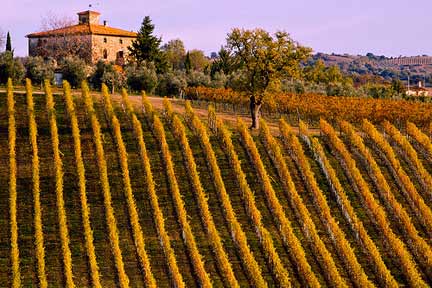In everyday modern life organic is gradually taking over, and it’s not just about sustainable farming or free-range, non-GMO chickens: Nowadays, end consumers are way more informed and conscious about what they are eating and won’t tolerate the addition of shady chemicals or harmful pesticides to their desired products. For this simple reason, organic foods and wine continue to gain in popularity, giving an alternative choice to conventionally farmed produce.
Following the trend, more and more wine producers have started to manufacture organic wine: these are wines which have been produced using organically farmed grapes and without adding harmful sulphites or, at least, using less than 10% of them in the finished product. As a matter of fact, each country has its own specific regulations on the matter and this determines a difference in the criteria used to meet the standards for organic labelling. In the EU, for example, the organic nomenclature can be given to wines which have been made from organically grown grapes and fruits but tolerate a small amount of sulphites, whereas, in the USA regulation, sulphites must be totally absent from the finished product in order for it to obtain the organic labelling.
There are a number of great reasons why consuming organic wine is definitely a wise choice. Here’s our list of the most important facts about organic wine you need to know:
1) Organic Wine is Healthier For You
As you may already know, red wine contains resveratrol, a powerful antioxidant that can be useful to combat cancer and heart disease. This means that, consuming a small amount of wine daily can probably help you stay healthy. Although, when chemicals and sulphites come into the picture the whole situation is different. Chemical pesticides, additives and preservatives are instead highly hazardous for the human wellbeing. They can be cancerous and at times poisonous for the blood. On the other hand sulphites are the reason why you get an annoying headache the morning after you feasted on wine, especially if it is white! Of course an excessive consumption of alcohol is never recommendable, however it is a proven fact that organic wine gives you all the gratification of flavour and none of the usual downsides!
2) Farming Without Harmful Chemicals is Respectful to the Land
Allowing the soil to breathe and to be pesticide free is a way of protecting and nourishing it the natural way. Back in the day when wine was first being made, none of the bad stuff had ever been used for its production. Obviously, as society progressed, more and more atmospheric adversities made it necessary to use chemicals in order to protect cultivations from parasites and damaging, external agents. Losing the harvest at the beginning of the 1900s was not something to take a chance on for sure. Now that our social and technological situation is different, we have the possibility to choose how to farm our land and without risks. There is logically a difference in farming the conventional way opposed to taking the organic road, and this can be identified in dissimilarity in quantity. Respecting nature’s cycles and times can certainly slow down the production rate but it is far better for the land and, in the long run, it definitely pays off in soil quality and duration.
3) Organic Wine Tastes More Natural
The most common reasons why fewer people still choose organic wine over conventionally produced wine are the reduced shelf life of the product due to the absence of sulphites and the wide belief that it probably just won’t taste right. The part about the shelf life is no longer necessarily true and ideas regarding the taste are just a collective misconception. Shelf life may sometimes be reduced just a little when a product is more naturally conceived, but that is just a downside that underlines its freshness and genuinity.
As far as taste is concerned, no wine really tastes the same, even if it is the same kind. Each wine brand has its very own techniques and secrets to producing a unique tasting experience… so why should this be different for organic wines? The only characteristic these wines do not share with the conventional wines is the absence of additives, pesticides and high amounts of sulphites, which are generally just used for preservation rather than taste. You’ll be extremely surprised in finding organic wines just as enjoyable as any other conventionally produced wine, if not better. The natural side of the product will generally add flavour rather than take it away.
4) Organic and Sustainable Farming Supports Small Businesses and Protects the Wellbeing of Land Workers
One more reason to convert to organic wine is related to ethical matters. Buying organically farmed wines means sustaining small, local businesses and making sure that all workers are treated fairly and without exposing themselves to harmful substances while working the land. Organic wine means fewer pesticides for us but it also means even fewer pesticides for people who work in close contact with the vineyards. Choosing organically labelled bottles for your romantic dinners or your friendly brunches means making an ethical decision as well as a healthier one.
Here are the certification symbols you should look for when buying organic Italian wine:





